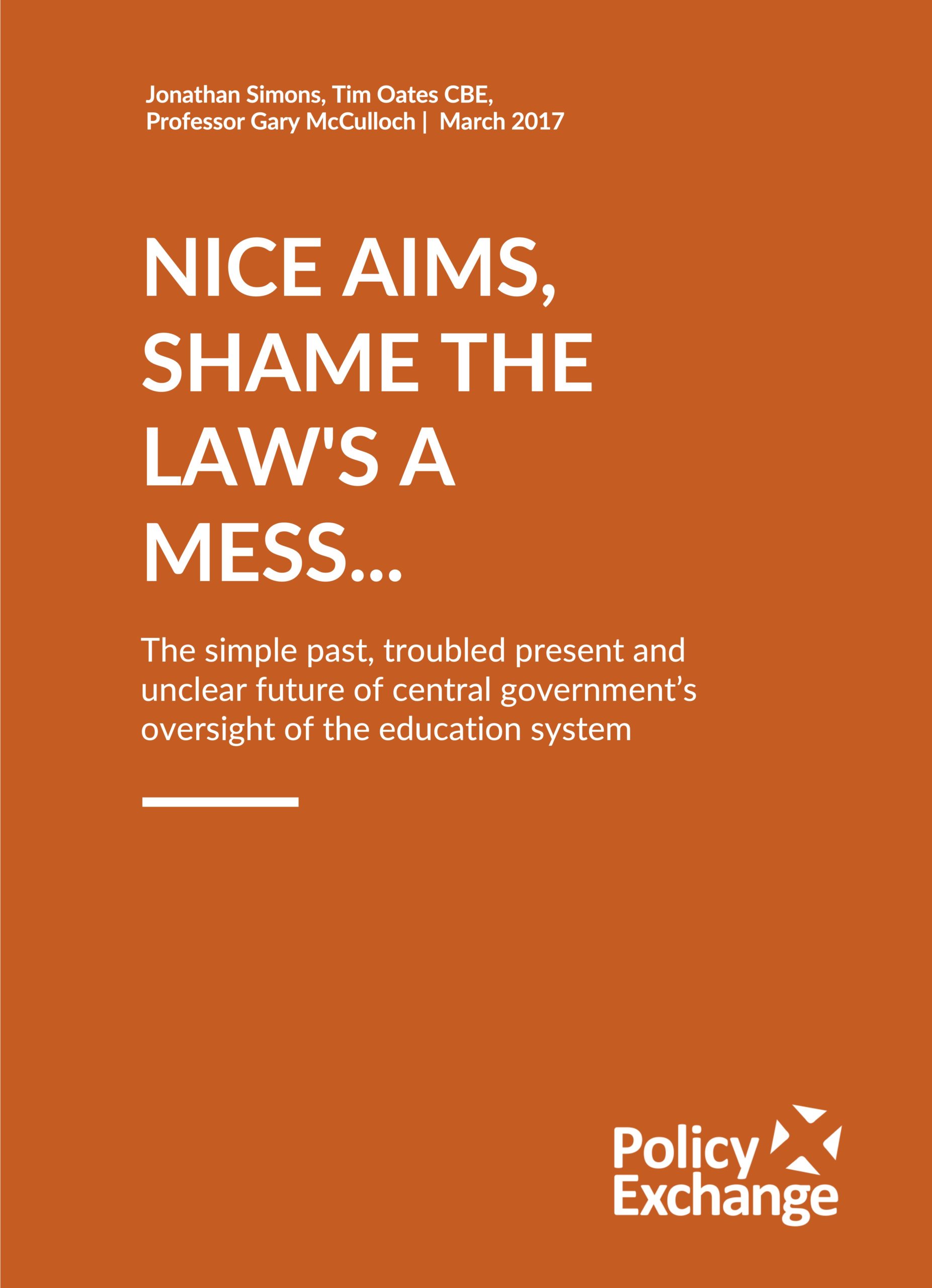
Nice aims, shame the law’s a mess…
Clarity in law is much more than an arcane pursuit. This short collection of essays examines the importance of ensuring that the legislation associated with education both supports the policy aims of the state and matches our understanding of high quality provision.
As all the essays in this collection show, the current situation is not optimal. Tim Oates discusses in his essay how the previous National Curriculum review created a messy situation where the new National Curriculum Programmes of Study were a legal requirement, but the Schemes of Work were not – although many teachers believed that they were. Similarly, Jonathan Simons and Tim Oates both discuss in their essays the concept of the English Baccalaureate, and the impact of it on actions taken by headteachers, despite being not a statutory measure but an accountability one. Does it matter, ask both authors, if such a measure is not legally enforceable? Both suggest that it is, but interestingly differ on why. Oates argues that powerful accountability measures not underpinned by law can in some instances prove historically fragile – with the important addition that consensus and law should go hand-in-hand. Simons believes that, in this instance, even the theoretical legal threat of enforceability would be ignored and hence undermine the whole concept of law.
What can be done about it? The current position is not a perennial state, as Professor McCulloch shows in his essay. Governments in the past have preferred to “steer at a distance”; meaning that, as late as 1963, the Ministry of Education could declare that “to the maximum possible extent, each school should be free to adopt a curriculum and teaching method based on its own needs and evolved by its own staff”. But as McCulloch also shows, such a model was not as simple or innocent as has sometimes been presumed.
Nevertheless, McCulloch concludes that “for all its inconveniences, frustrations and potential misunderstandings, it did at least have some advantages over a system that was to pursue an illusion of detailed prescription from the centre”. Similarly, Oates and Simons also conclude that the current system needs revisiting. This is not, as Oates makes clear, an attack on one particular government, nor the direction of current policy. It is simply one of efficacy. The importance of good housekeeping in the effective oversight of an education system should not be underestimated.



